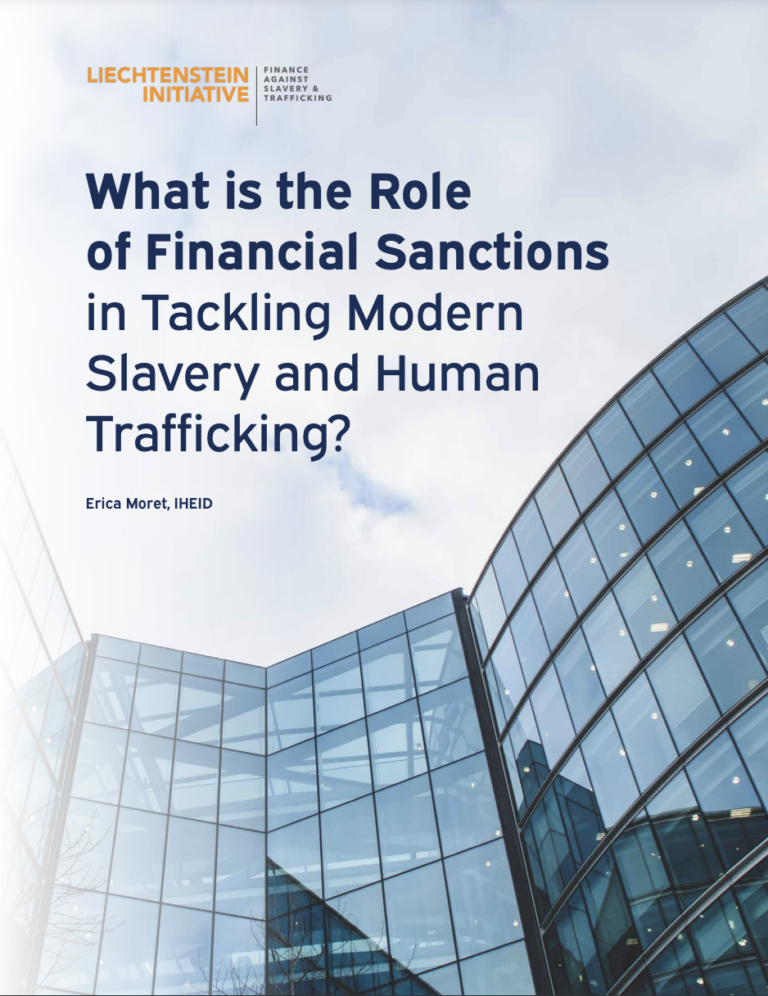No country in the world is immune to the devastating impacts of modern slavery and human trafficking. Representing one of the world’s most profitable criminal enterprises, it generates some USD 150 billion per year. Addressing the financial angle of these gross human rights abuses is recognized as an essential approach in tackling the problem. The engagement of the financial sector, alongside the use of several financial-related policy instruments, play a vital role. This includes measures to counter money laundering and the financing of terrorism.
To date, the UN has only used targeted sanctions in a limited number of cases in relation to modern slavery and human trafficking. Going a step further, a number of other actors, including the US, EU, UK, Canada, and Australia, have employed their own autonomous (or unilateral) sanctions to tackle the global challenge, or have started to develop legal frameworks to allow for their eventual employment. These are measures that either supplement multilateral – UN – sanctions, or are imposed entirely separately.
However, the use of these types of sanctions to tackle modern slavery and human trafficking is not yet widespread or particularly hard-hitting. When used, they are largely limited to asset freezes and travel bans. Some do not reference modern slavery and human trafficking outright, but instead address the problem under broader umbrella terms such as human rights or conflict resolution. Furthermore, such measures do not yet involve some of the more sophisticated financial sanctions that have been developed elsewhere in recent years. Clear policy communication is also lacking on the overarching strategies underlying the current use of some sanctions to tackle modern slavery and human trafficking. It is also not yet clear whether these sanctions are intended to seriously disrupt trafficking networks, rather than occupying less ambitious, more symbolic functions such as “naming and shaming.” There are also major gaps regarding enforcement, political will, capacity, and engagement across sectors.
This report, commissioned by the Finance Against Slavery and Trafficking (FAST) initiative at United Nations University Centre for Policy Research (UNU-CPR), is based on 18 anonymized semi-structured interviews with officials from the UN, US, EU, UK, and Canada, financial institution representatives and experts on sanctions, modern slavery and human trafficking, transnational organized crime, supply chains, and corporate governance. These interviews were conducted between 15 December 2021 and 4 March 2022. This study is also based on desk research, including on existing sanctions regimes, relevant legislation and academic/policy studies. Finally, it benefited from consultations with 12 academic, think tank and financial sector experts.

